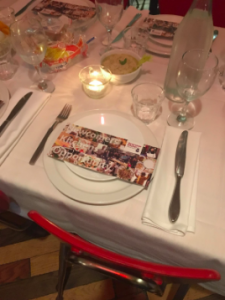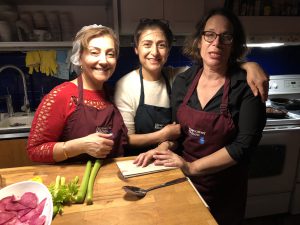Sophia Cai
A sea of pink pussy hats from the Women’s March captioned “She the People.” James Baldwin’s quote about disagreement. A mockup of the frontpage that would have been printed had Hillary won the 2016 election.
This is not an American newsroom but the newsroom of the The Toronto Star. The clippings tacked around the room are reminders that American politics wash over Canada’s border.
A tour of The Toronto Star newsroom and a conversation with Nicholas Keung, one of its longtime immigration reporters, reaffirmed that American politics is being watched by the Canadian public, and in turn influences Canada’s politics. As Canada inches closer to its 2019 elections, the moves of the Trump administration are particularly relevant when it comes to immigration.
How did the recent tensions around “irregular” crossers and other immigration issues in Canada arise, and what does it mean? It’s the million-dollar question that many Canadian media outlets are trying to address. For example, in 2015, Canadians overwhelmingly supported the government’s efforts to support refugees. More recently, Toronto mayoral candidate Faith Goldy held a press conference in front of a hotel where irregular crossers often stay, exploiting their circumstances.
Why did attitudes dramatically change in that short period of three years, between 2015 and 2018?
One Toronto Star reporter told us that when the number of asylum-seekers crossing from the U.S. surged in 2016, fear and anticipation kicked in. The conservative party in Canada quickly learned from the success of the Trump rhetoric and began pushing terms like “border jumper” and “illegal.”
“So much of the tension has to do with the political leadership,” says the reporter. “Opposition politics fuels the fire when they mislead the public and try to exploit the issue for political scores.”
Sounds familiar?
Of course, there are those who disagree. A Canadian journalist who joined us for dinner does not believe immigration will be a wedge issue as it has been in the U.S.
His argument is that Canada has solved some of its most pressing problems (social inequality, racial tension, abortion, etc.) while the United States has not. “We legalized gay marriage in the 80s and it has since been settled […] The U.S. has had racism forever,” he said.
Still, Canadian engagement in American politics cannot escape the fact that we are neighboring countries with more similarities than differences. Trump has essentially written a how-to guide for politicians wishing to exploit immigration.
Tune in tonight at 5 P.M. EST to hear Steve Bannon and David Frum debate on the future of Western politics, at the Munk School of Global Affairs & Public Policy in Toronto.
https://www.munkdebates.com

